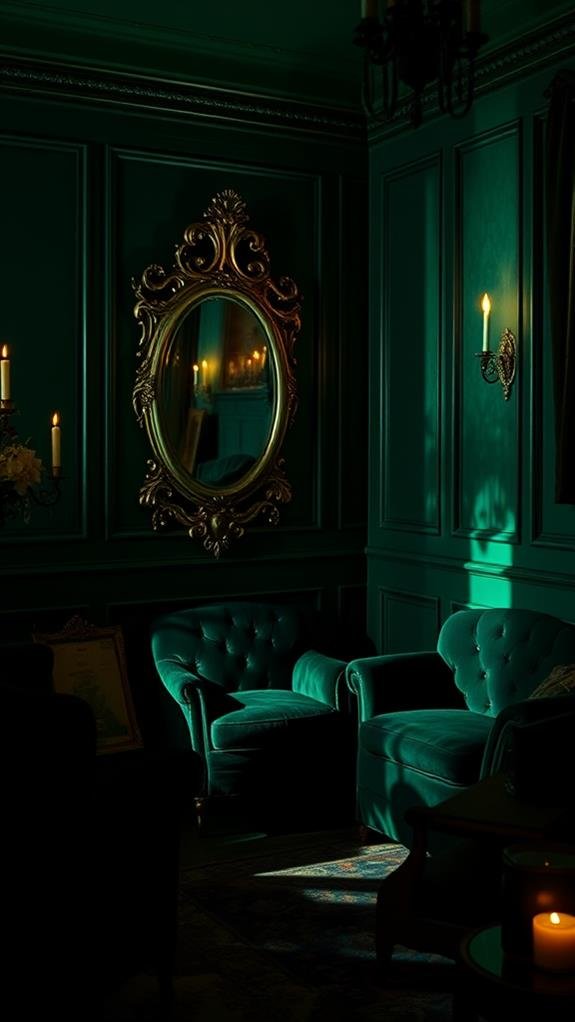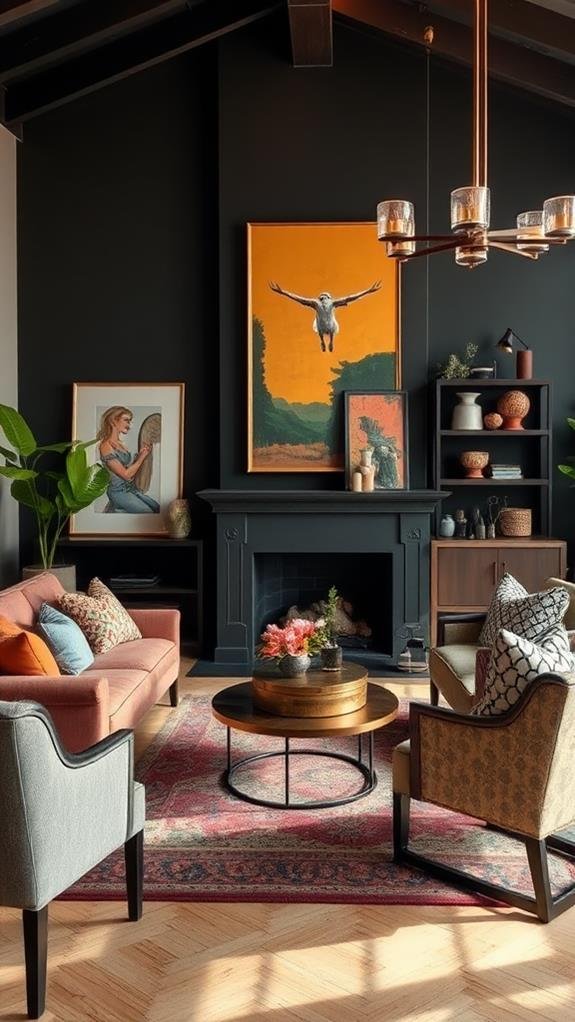5 Essential Qualities of an Interior Designer
When you’re considering hiring an interior designer, it’s vital to understand what qualities to look for. Strong communication skills are non-negotiable; they make certain your vision is accurately interpreted and executed. Just as important is a designer’s ability to solve problems creatively, adapting to unforeseen challenges while maintaining your style. Attention to detail can enhance a project from ordinary to exceptional, and an awareness of design trends keeps the space feeling fresh. Finally, a client-centric approach guarantees that your needs remain the priority throughout the process. But how do these qualities translate into successful design outcomes?
Strong Communication Skills

Strong communication skills are vital for any successful interior designer. You’ll need to share your ideas clearly with clients, contractors, and suppliers to guarantee everyone is on the same page.
Listening is just as important; by understanding your client’s needs and desires, you can create spaces that truly reflect their personalities. It’s important to express your ideas (like color schemes or furniture placement) in a way that inspires confidence and excitement.
Whether you’re writing emails, making phone calls, or presenting designs, clear communication helps avoid misunderstandings and potential setbacks. Additionally, you might need to explain technical terms in a way that’s easy for clients to understand.
Establishing a good rapport through effective communication sets the foundation for successful projects.
Creative Problem Solving
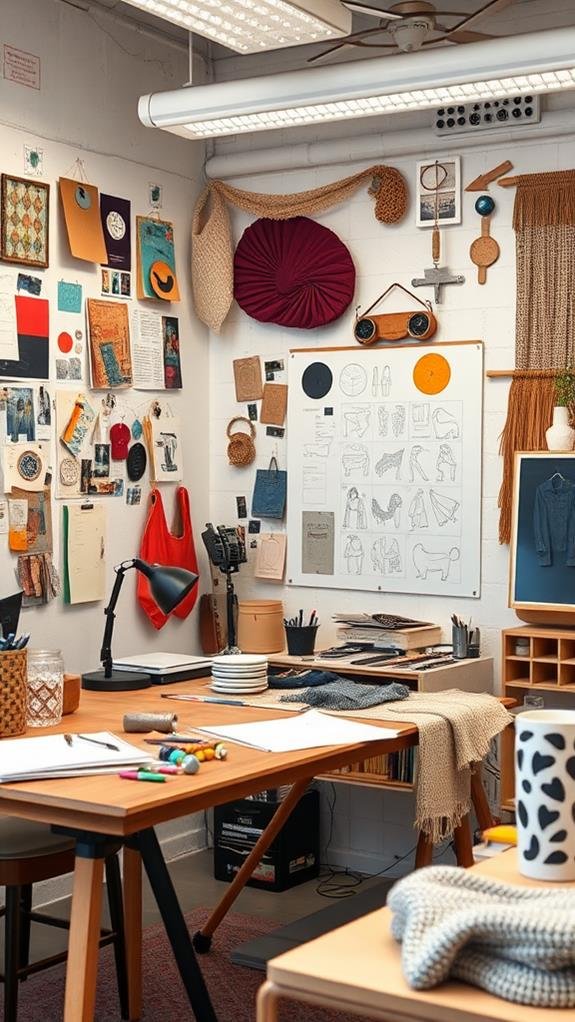
Creative problem solving is essential for interior designers facing the unique challenges of each project.
You’ll often encounter unexpected issues, whether it’s a tight space, unusual layout, or client requests that seem impossible. In these moments, your ability to think creatively will shine. You need to brainstorm multiple solutions, considering factors like budget, style, and functionality.
It’s important to stay flexible; what works for one project may not fit another. When reimagining a room, combining different ideas can lead to innovative outcomes. Collaborating with clients and other professionals offers fresh perspectives too.
Ultimately, by embracing creative problem solving, you’ll not only tackle obstacles but also enhance your designs, ensuring every space feels just right for those who inhabit it.
Attention to Detail
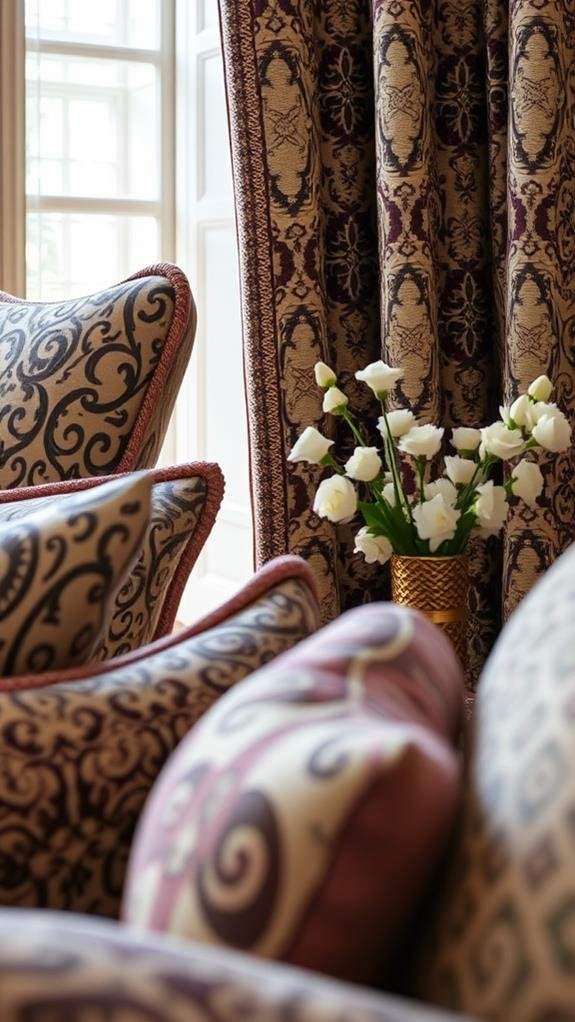
An interior designer’s attention to detail can make or break a project. When you focus on the little things, like color coordination, furniture placement, and the texture of materials, you create a cohesive and inviting space.
It’s not just about picking pretty items; the details allow a room to tell a story. For instance, choosing the right lighting can highlight unique features, while matching accessories improve the overall look.
You might also consider how colors interact with each other, as it greatly affects the atmosphere. By paying close attention to these elements, you guarantee that the final design feels polished and thoughtful.
In the end, these small details lead to a big impact, transforming ordinary spaces into extraordinary ones.
Knowledge of Design Trends
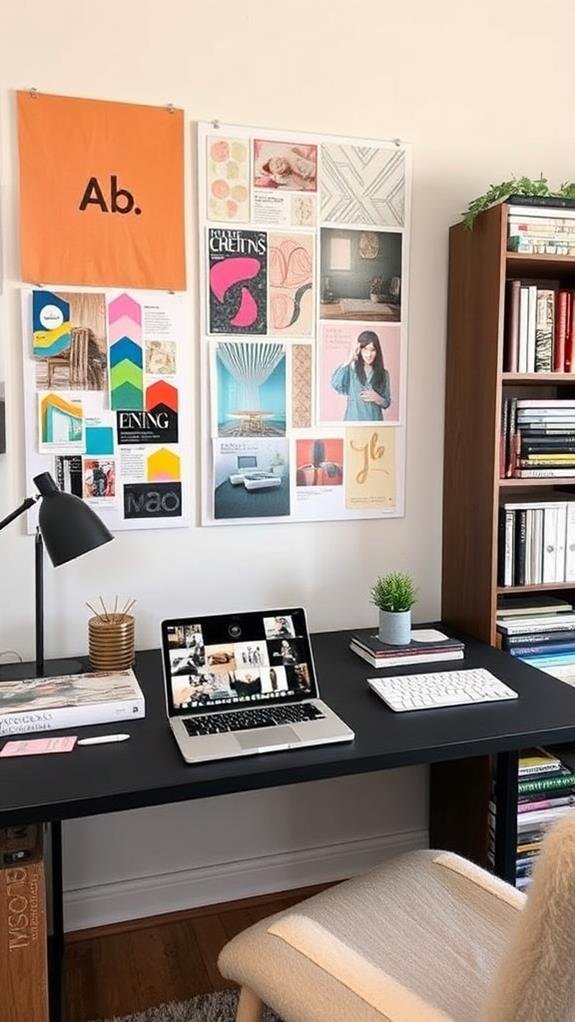
Effective interior design isn’t just about meticulous details; it also requires staying updated on current design trends. You need to know what’s popular and what’s fading away because trends can change quickly.
Familiarizing yourself with the latest styles, colors, and materials helps you create spaces that feel fresh and inviting. Attend design shows, read industry magazines, and follow influential designers online. This knowledge not only inspires you but also allows you to suggest modern ideas to your clients.
Client-Centric Approach
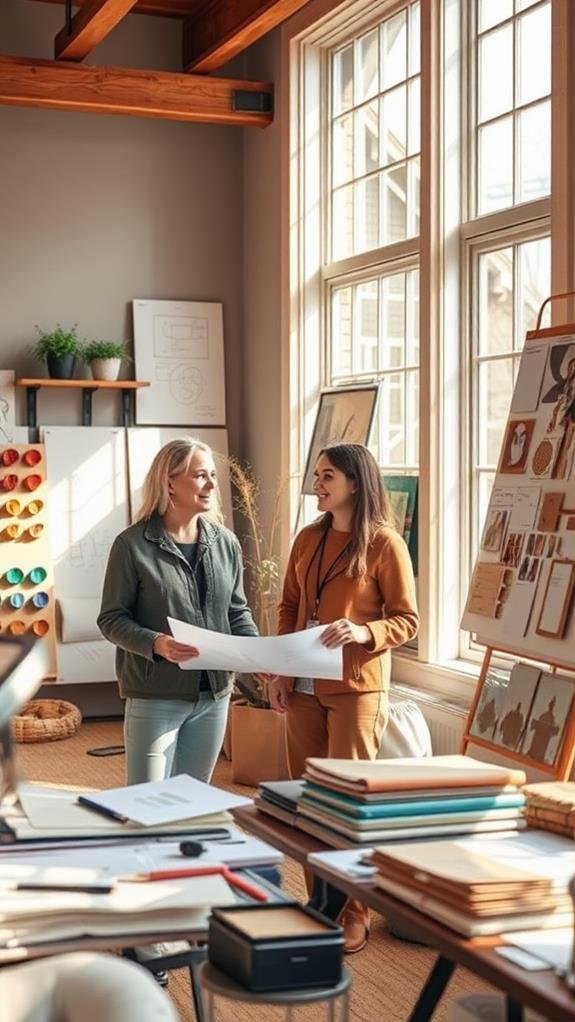
A successful interior designer prioritizes a client-centric approach, recognizing that understanding the client’s needs and preferences is essential for creating a space that truly resonates.
By actively listening to your ideas and wishes, a designer can translate your vision into reality. It’s important for them to ask questions about your lifestyle, style preferences, and even your budget, so they can tailor their designs specifically for you.
This collaboration creates a sense of trust, and it guarantees the final design feels personal and unique. Additionally, a good designer will communicate openly throughout the process, keeping you in the loop as your project evolves.
Ultimately, their goal is to transform your space into a reflection of who you are, making it practical and inviting.
Conclusion
To sum up, a successful interior designer combines strong communication skills with creative problem-solving abilities. They pay close attention to detail, stay updated on design trends, and always put the client’s needs first. By embracing these essential qualities, designers can create spaces that are not only beautiful but also meaningful and functional. Whether you’re looking to design your dream room or just appreciate great interiors, understanding these qualities can help you see the hard work behind every stunning space.

